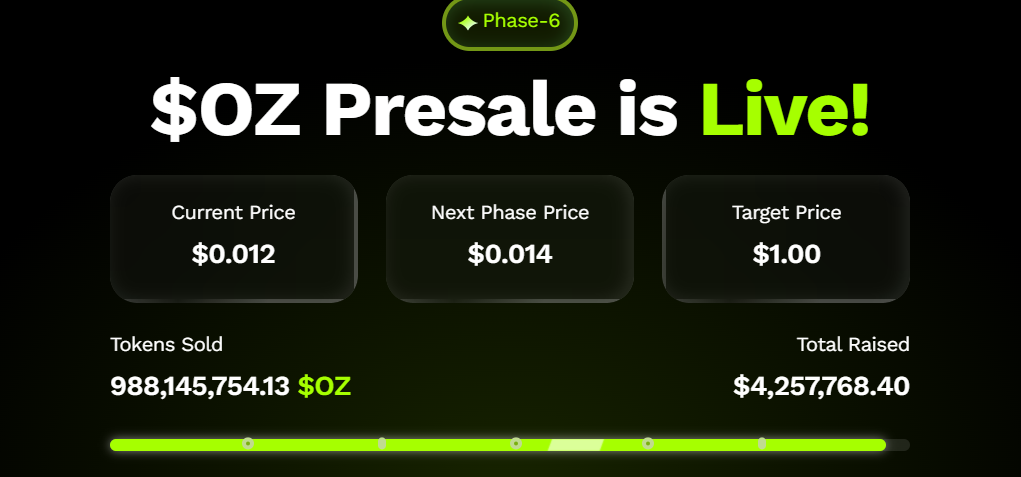News
Stay up to date on the latest crypto trends with our expert, in-depth coverage.

- Hyperliquid dominates 73% of Q1 2025 crypto trading with its HyperBFT blockchain, 0.2-second block times, and transparent HLP liquidity pools. - The platform maintained 100% uptime during 2025's market crash, processing $10B in liquidations while Binance faced outages and refunds. - 21Shares filed an ETF for Hyperliquid's HYPE token (now 11th largest crypto at $12.6B), while $645M in buybacks boosted institutional confidence. - Hyperliquid captured 15% of Binance's volume via permissionless market creati

- Bitcoin's Q3 2025 ETF outflows reached $1.15B, driven by Fidelity and Ark, reflecting institutional risk recalibration amid structural vulnerabilities. - Macroeconomic factors like Fed rate cuts and U.S.-China tensions amplified Bitcoin's volatility, triggering an 18% price correction in October 2025. - ETFs now hold 6.7% of all Bitcoin , creating liquidity concentration risks as redemptions and inflows directly reshape exchange order-book dynamics. - Regulatory shifts, including India's SEBI trading cur
- LUNA plummeted 2.85% in 24 hours to $0.0888, despite a 8.7% weekly rise, amid a 78.61% annual decline. - Analysts highlight structural concerns as RSI and moving averages signal bearish trends, contrasting short-term optimism. - A 2022 backtest showed LUNA outperformed markets during 5% surges, underscoring resilience amid crypto volatility.
- Bitcoin fell 1.48% to $101,920.89 on Nov 8, 2025, amid a 7.11% monthly decline despite a 8.8% annual gain. - American Bitcoin Corp (ABTC) boosted its BTC treasury to 4,004 coins ($415M), leveraging mining and spot buys to align shareholder interests. - Trump family's $800M crypto ventures and ABTC's "Satoshis Per Share" metric highlight growing institutional Bitcoin adoption. - BlackRock's $127M Bitcoin ETF outflow and whale movements like Owen Gunden's $372M transfer underscore market volatility and lev
- YFI fell 5.69% in 24 hours on Nov 8, 2025, but rose 7% in 7 days and 3.29% in 30 days amid heightened volatility. - The sharp drop triggered technical buying, while monthly gains suggest partial recovery after a 39.17% annual decline. - Analysts highlight critical support/resistance levels, with short-term reversal potential pending confirmation. - A backtest of historical 10%+ daily drops could assess if this pullback aligns with typical recovery patterns.




- 22:28Most Federal Reserve regional voting members are not supportive of a rate cut in DecemberAccording to ChainCatcher, citing Golden Ten Data, Federal Reserve officials have recently been intensively discussing monetary policy. "Fed mouthpiece" Nick Timiraos stated that currently, four regional Federal Reserve presidents with voting rights are not actively pushing for another rate cut in December. These four presidents are Collins of the Boston Fed, Musalem of the St. Louis Fed, Goolsbee of the Chicago Fed, and Schmid of the Kansas Fed, who voted against the rate cut decision in October.
- 22:24Microsoft to leverage OpenAI's custom chip technology to support internal R&D effortsJinse Finance reported that Microsoft (MSFT.O) plans to leverage its access to OpenAI's custom AI chip development to advance its own chip projects. When asked about the progress of Microsoft's internal chip development, CEO Satya Nadella stated in a podcast: "Whenever they (OpenAI) innovate at the system level, we have full access to those results. We first help them realize the technology they are building, and then further expand upon it." According to the revised agreement between the two companies, Microsoft will continue to have access to OpenAI's models until 2032 and share its research results until 2030, or until an expert panel determines that Artificial General Intelligence (AGI) has been achieved.
- 22:24Brazil proposes selling seized bitcoin to weaken organized crime networksJinse Finance reported that the Brazilian government has proposed legislation to allow the sale of seized cryptocurrencies (such as bitcoin) in order to dismantle the financial infrastructure of organized crime groups. The proposed law would treat cryptocurrencies as foreign currency and financial securities. This move is part of Brazil's broader efforts to combat organized crime. Meanwhile, the country's central bank is implementing new regulations requiring cryptocurrency companies to obtain licenses and hold capital reserves.